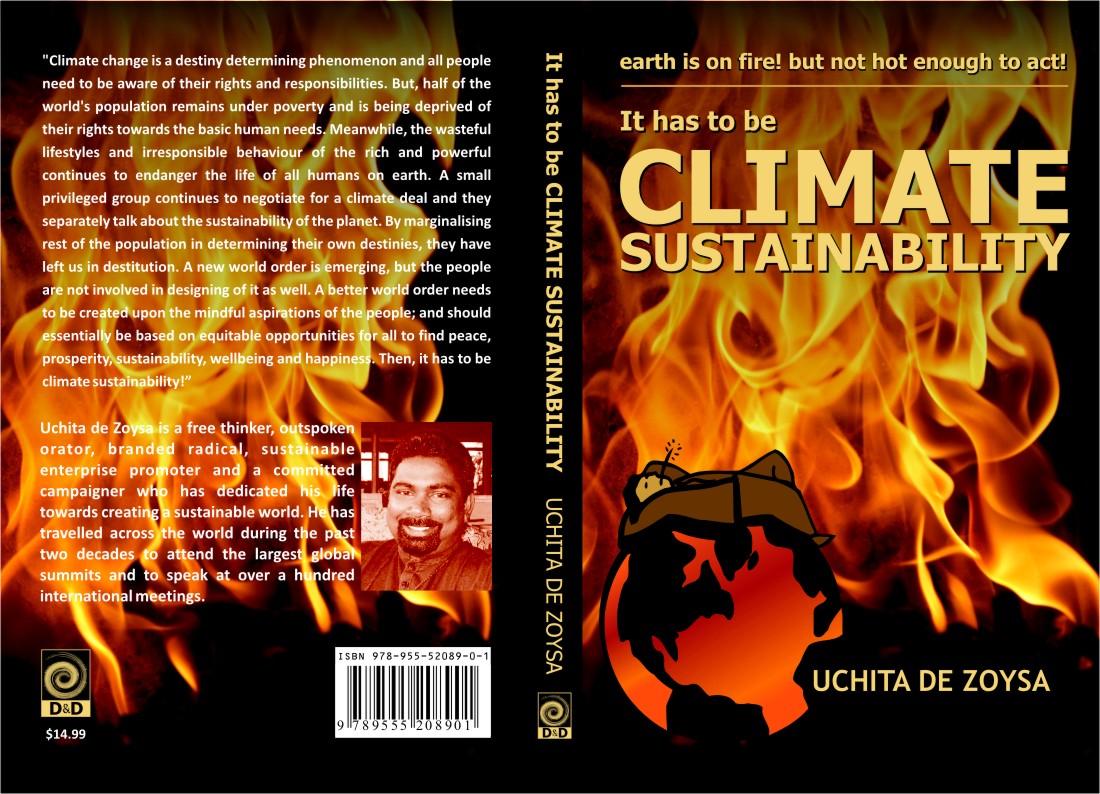CHAPTER 04: Talking Sustainability
Chapter four takes us through four decades of multi-lateral negotiations which have been apparently 'talk-shops' for sustainability. The talks and actual implementation do not appear to be connected, because the earth's climate is changing and the poor are still trapped in a vicious cycle of poverty. The negotiators will continue to talk, but can we afford to wait without acting for our own future?
(from pg 76) ..... "In the run-up to the 1992 Earth Summit, Mr. Maurice Strong, the Secretary General of the United Nations Conference on Environment and Development (UNCED), declared that it was the “last chance to save the earth”. 15 years later, the findings of the fourth Assessment Report of the Intergovernmental Panel on Climate Change (IPCC) caution the world that human survival on earth is seriously endangered. The chairman of IPCC Dr. Rajendra K. Pachauri recently challenged anyone who says ‘what is the point and why take action?” He says that if we start today, we can really make a difference in the next two to three decades. Who should I believe? Or what should I believe? Should I ask myself “when is the last chance to save the earth”? ....."
(from pg 77) ..... "International environmental conferences are widely believed to be 'talk shops'. For nearly four decades the UN intergovernmental talk shops have deliberated on saving the earth and implementing sustainable development. But, since then the climate has further deteriorated, hunger in parts of sub-Saharan Africa and South Asia has risen, and the global economy has crashed. 'Talking sustainability' has become one of the best practised actions by the multilateral system and has spread to other sectors as well. People now allege that talking sustainability has become a profitable business for many in civil society, research, government and even industry." ......
(from pg 83) ..... "In response towards creating a better world, some researchers and designers, particularly in Europe, have started talking about sustainability every day; and it sounds like a compromise by western societies to what we in the South traditionally call sustainable lifestyles. Living in a sustainable manner throughout life is not considered a compromise or bargain in most eastern societies, but a meaningful and right livelihood. If it is hard to imagine living in sustainability during an entire life time, it is better that the western consumer learns to deal with such challenges on a daily basis."
from pg 86) ..... "Contentment is a missing link in the Western lifestyle. People in the West have been eternally in search of material comfort and possessions. The growing talk on sustainable design kept me engaged with designers and innovation researchers in Europe during the last few years. I held sustainability dialogues with lifestyle designers across different cities in Sweden in the year 2007. At one dialogue, where the emotions started running riot I saw some young designers shouting slogans that the world needs to be changed. Very radical ideas were flowing from one end of the room to the other."
